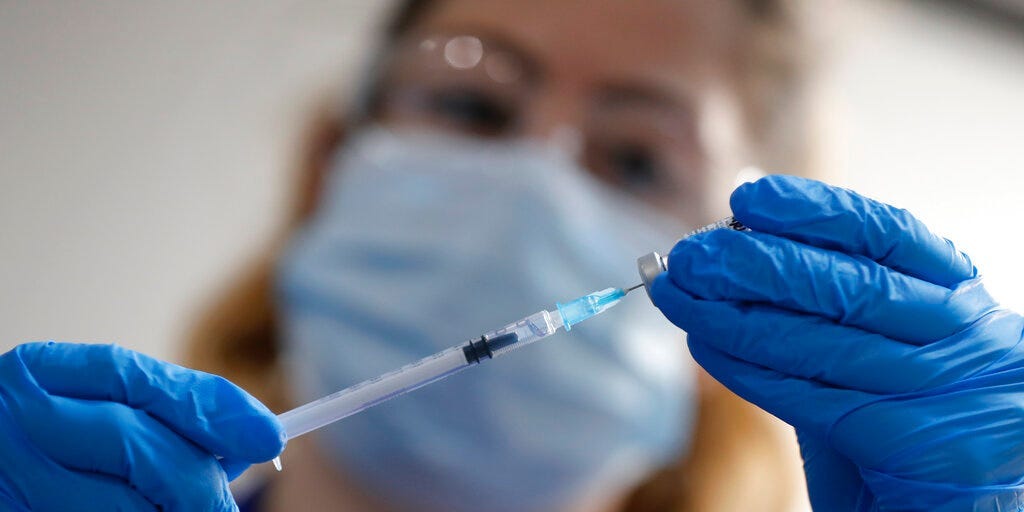
AP Photo/Frank Augstein
- Indiana healthcare workers who wanted to get the COVID-19 vaccine crashed the state’s registration site, even before supplies arrived on Monday, WTHR-TV reported.
- Six healthcare workers in Fort Wayne were the first in the state to get vaccinated on Monday, the Indianapolis Star reported.
- The demand for the vaccine comes as cases in the state rise, and Indiana ranks 4th for the number of cases per 100,000 people.
- Visit Business Insider’s homepage for more stories.
Healthcare workers attempting to sign up to receive the COVID-19 vaccine in Indiana overwhelmed the state’s registration site, forcing it to temporarily crash even before supplies arrived in the state on Monday, the local news outlet WTHR-TV reported.
“Due to a large amount of traffic, the site is currently down. Check back this afternoon,” the site read at the time, WTHR reported.
Some healthcare workers told the local TV station they thought the crash was a positive sign that people were willing to get vaccinated.
“Most of us are viewing these technical issues as positives that the demand for the vaccine is proving to be very, very strong,” Dr. Christopher Doehring of Franciscan Health Indianapolis said.
On Friday, the US Food and Drug Administration granted emergency authorization for the COVID-19 vaccine developed by Pfizer and BioNTech.
Six healthcare workers in Fort Wayne, Indiana, were the first in the state to receive the vaccine on Monday, the Indianapolis Star reported.
Indiana, like many other states across the US has seen a rise in cases and hospitals have been overwhelmed.
The Indianapolis NPR affiliate WFYI reported hospitals in Central Indiana were pleading with the public to take the virus seriously and help curb the spread. Indiana has become a hot spot with more than 93 COVID-19 cases per 100,000 residents over the past seven days. It's the fourth in the nation with the highest rate per 100,000 residents, According to the Centers for Disease Control and Prevention.
As of Monday, the US as a whole has surpassed 16.4 million infections with over 300,000 deaths, according to data from Johns Hopkins University.

